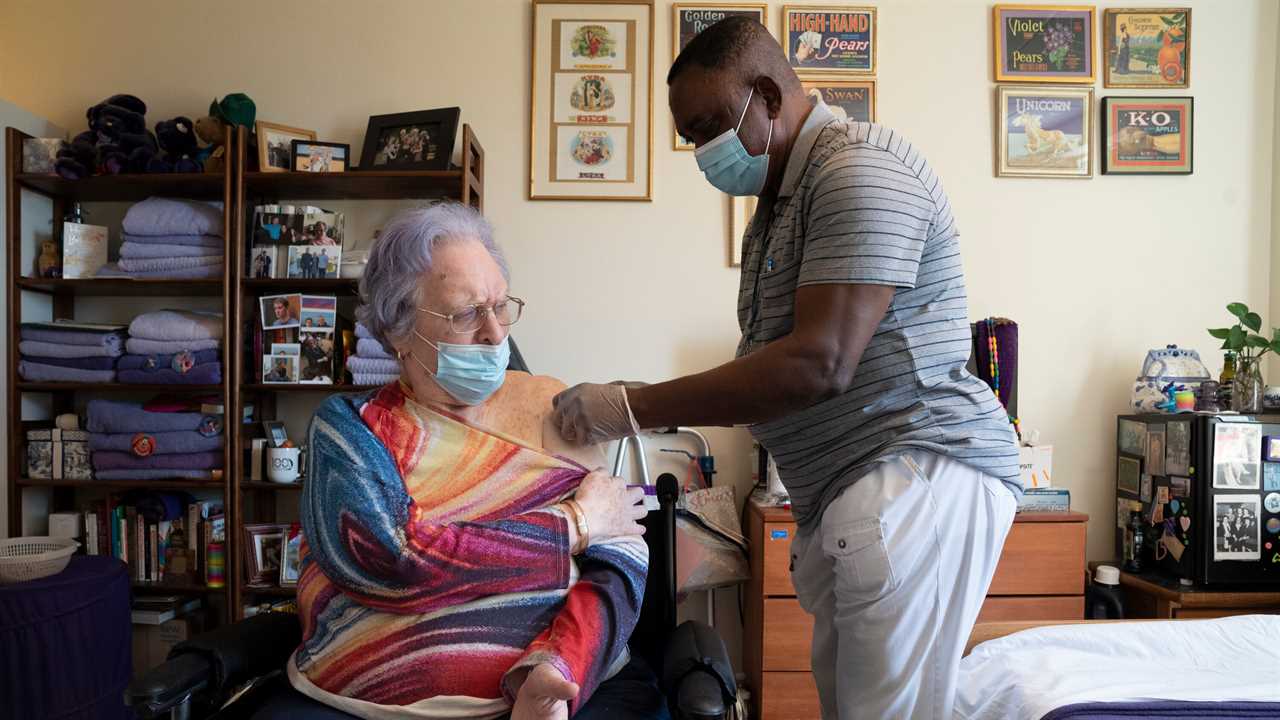
WASHINGTON — The Food and Drug Administration is aiming to authorize booster doses of Pfizer-BioNTech’s coronavirus vaccine for all adults as early as Thursday, a move that would expand the number of Americans eligible for additional shots by tens of millions, according to people familiar with the agency’s plans.
The Centers for Disease Control and Prevention’s independent committee of vaccine experts has scheduled a meeting for Friday to discuss data on the booster dose’s efficacy and safety. If both the F.D.A. and the C.D.C. sign off this week, they will have acted strikingly quickly — a little more than a week after Pfizer asked for authorization of boosters for everyone 18 and older.
Under that scenario, any adult who received a second dose of the vaccine at least six months earlier would be officially eligible to get a booster as soon as this weekend. The F.D.A. is expected to rule without consulting its own expert panel, which has met frequently during the pandemic to review vaccine data and make a recommendation ahead of a regulatory decision.
The broad booster authorization has been viewed as something of a fait accompli for weeks. Some state and local officials have begun rolling out similar policies ahead of F.D.A. action — responding to persistent virus case counts, including some breakthrough cases, and the eagerness of many Americans to seek additional protection ahead of holiday gatherings.
New York City health officials on Monday encouraged all adults who want boosters to seek them out. Arkansas, California, Colorado and New Mexico have also moved to expand access.
Many Americans, regardless of where they live, have taken the matter into their own hands and sought out extra doses even if they did not yet officially qualify.
The F.D.A. in September downsized an initial request from Pfizer-BioNTech’s to fully approve booster doses for all adults. Instead, it made a more limited population eligible, including those 65 and older, as well as adults with underlying medical conditions or those at risk because of their jobs.
At least 30 to 40 percent of vaccinated adults are still excluded from booster eligibility, according to some estimates.
More than 30 million people have already gotten additional shots, with the daily number often outpacing that of first shots given around the country. Booster doses were also authorized in October for everyone who received the single-dose Johnson & Johnson vaccine, and for vulnerable groups who received Moderna’s two-dose shot.
The C.D.C.’s gathering on Friday is scheduled to be briefer than recent meetings about Covid vaccines — just three hours. It is expected to be straightforward, one federal official familiar with the planning said, in part because of how far the nation’s booster campaign has already come. That would suggest a significant softening of opposition among public health experts since President Biden announced in August that he hoped to offer booster doses to all adults.
The Coronavirus Pandemic: Latest Updates
- New York’s governor urges a broader group of adults to get boosters based on risk.
- The F.D.A. plans to authorize Pfizer-BioNTech boosters for all adults as soon as Thursday.
- D.C. eases its indoor mask mandate, but still recommends masking up.
Mr. Biden wanted to start the campaign in late September, but his announcement was heavily criticized by public health experts, who said he was rushing the federal scientists and regulators responsible for deciding whether the data supported such a move.
Some key regulators and outside advisers had argued that the effectiveness of the two-dose regimen, especially in preventing hospitalization and death, has held up strongly. One large study in New York of nearly nine million people has shown remarkable durability in the protection gained from all three federally authorized vaccines.
But more recently, federal regulators and scientists have said the evidence is increasingly clear that a reduction in vaccine efficacy against milder Covid cases, and in protective antibodies, has put Americans — especially seniors and those with medical conditions — at risk of harmful breakthrough infections as the Delta variant of the virus only gradually loosens its grip.
Pfizer and BioNTech said last week that their request is based on data from a clinical trial in the United States and elsewhere that included more than 10,000 volunteers. After a third dose, the vaccine’s efficacy rate against symptomatic disease had been restored to about 95 percent, they said. It remains unclear, however, how long the protection from a booster shot will last.






